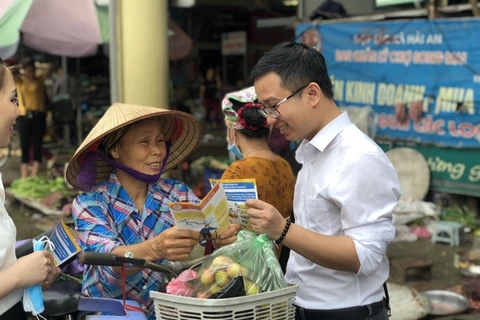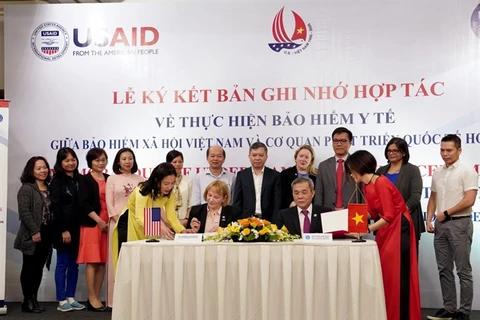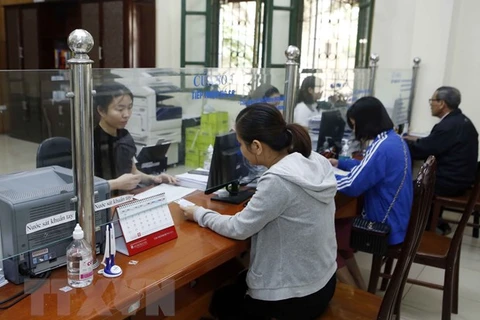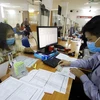Hanoi (VNA) - The number of people voluntarily joining the social insurance network has grown by 750,000 over the last two years, three times higher than a decade ago, heard an online conference held by the Ministry of Labour, Invalids and Social Affairs on January 11 to introduce tasks for 2021.
Addressing the conference, Deputy Prime Minister Vu Duc Dam praised the labour sector’s achievements last year amid COVID-19, particularly in poverty reduction, ensuring social welfare, employment, and vocational training.
Despite the impact of the pandemic, more than 1.3 million jobs were created in 2020, meeting 83.3 percent of the goal set for the year and bringing the total number generated in 2016-2020 to nearly 8 million. Sixteen million people, or 33.2 percent of people of working age, joined the social insurance network last year.
The Deputy PM asked the ministry to focus on improving its performance in implementing social policies targeting revolutionary contributors, developing a diverse and multilayer social welfare network, and enhancing human resources via increasing training quality, among other matters.
He requested that good care be given to those in need as well as people who rendered services to the country’s revolution at the upcoming Lunar New Year (Tet) holiday.
The sector revealed targets for 2021 at the conference, including developing a flexible and adaptive labour market that can meet requirements in post-pandemic recovery, and boosting the quality of vocational education, with a focus on building a high-quality workforce.
The building of harmonious, stable, and progressive workplace relations is also important, especially with the appearance of new issues such as salary policies, extended retirement age, and those relating to workplace relations development as stipulated in the revised Labour Code, which took effect on January 1./.
Addressing the conference, Deputy Prime Minister Vu Duc Dam praised the labour sector’s achievements last year amid COVID-19, particularly in poverty reduction, ensuring social welfare, employment, and vocational training.
Despite the impact of the pandemic, more than 1.3 million jobs were created in 2020, meeting 83.3 percent of the goal set for the year and bringing the total number generated in 2016-2020 to nearly 8 million. Sixteen million people, or 33.2 percent of people of working age, joined the social insurance network last year.
The Deputy PM asked the ministry to focus on improving its performance in implementing social policies targeting revolutionary contributors, developing a diverse and multilayer social welfare network, and enhancing human resources via increasing training quality, among other matters.
He requested that good care be given to those in need as well as people who rendered services to the country’s revolution at the upcoming Lunar New Year (Tet) holiday.
The sector revealed targets for 2021 at the conference, including developing a flexible and adaptive labour market that can meet requirements in post-pandemic recovery, and boosting the quality of vocational education, with a focus on building a high-quality workforce.
The building of harmonious, stable, and progressive workplace relations is also important, especially with the appearance of new issues such as salary policies, extended retirement age, and those relating to workplace relations development as stipulated in the revised Labour Code, which took effect on January 1./.
VNA
























